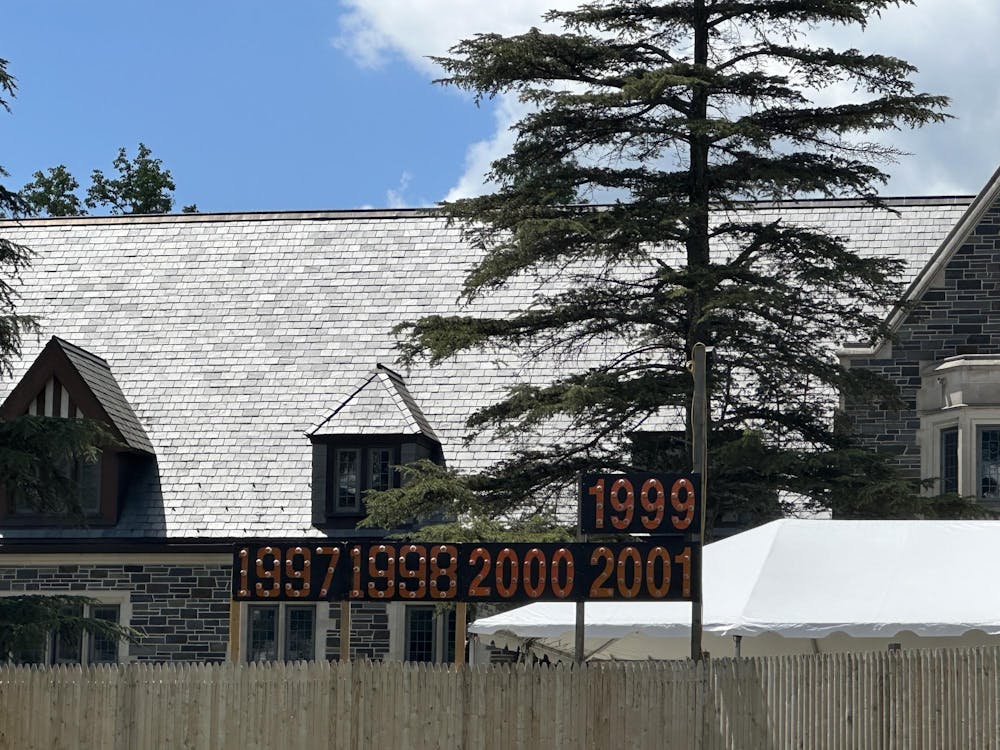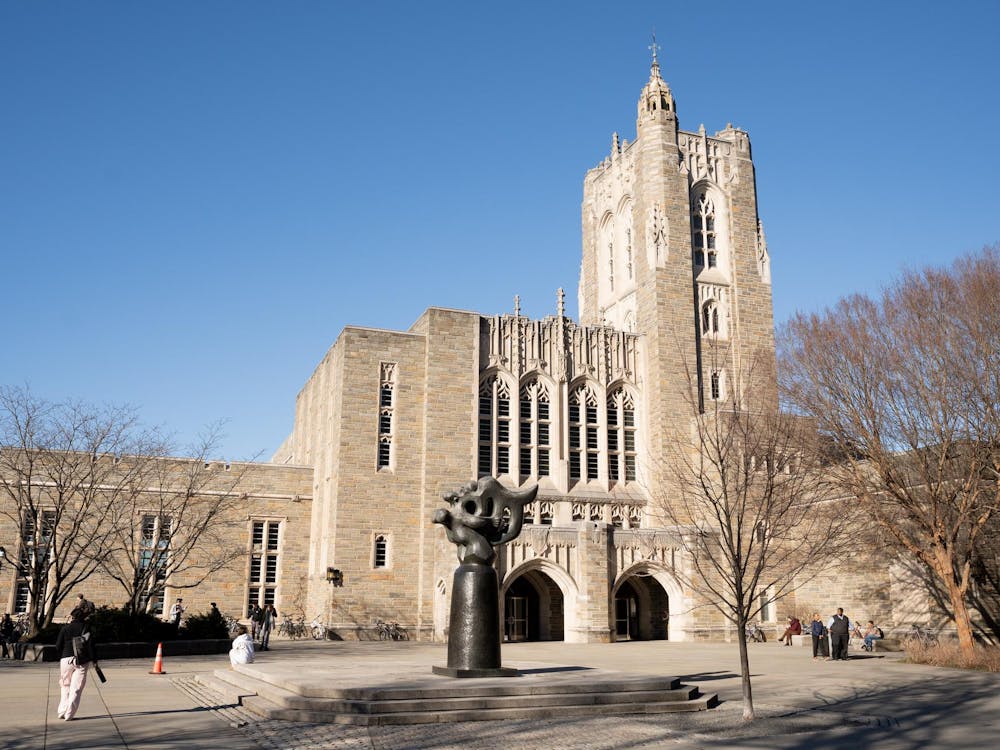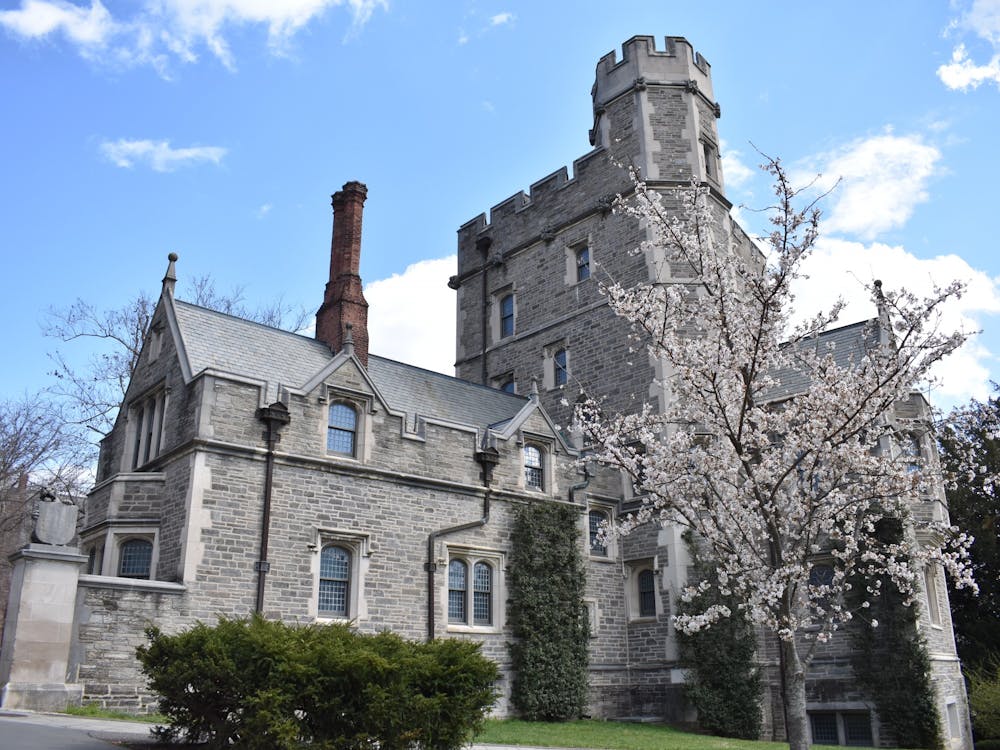Editor’s note: The following piece is a contribution from the 122nd Editor-in-Chief Christine Whelan ’99. See the full results of the ‘Prince’s Class of 1999 Survey here.
The members of the Class of 1999 report they are cheerful and living lives of purpose, according to The Daily Princetonian survey of more than 400 alumni gearing up for our 25th Reunion. In response to survey questions measuring positive mood and vitality, the Class of 1999 reported high levels of interest and enjoyment in day-to-day life, a strong sense of direction and good sense of what makes life meaningful.
In the 2024 Senior Survey, the Class of 2024 also reported high levels of interest and enjoyment in day-to-day life, but anxiety and exhaustion reduced overall well-being. Wellness and well-being are marketing buzzwords right now, but true thriving in life comes from daily actions, not the latest supplements or gadgets.
Editors in the ‘Prince,’ past and present, used the widely adopted World Health Organization’s five-item questionnaire (WHO-5), because it provides a snapshot of overall well-being and screens for signs of depression.
We asked the Classes of 1999 and 2024 how often in the previous two weeks they felt they agreed with statements like “my daily life has been filled with things that interest me,” and “I have felt calm and relaxed.” Answer choices were on a 0 to 5 scale, where 0 is “almost never” and 5 is “almost always.” Higher numerical scores translate to higher levels of subjective well-being. The raw WHO-5 score is calculated summing the answer choices for each of the five questions.
In addition, we asked the Class of 1999 how strongly they agreed or disagreed with several items about purpose and meaning in life, including academically validated statements like “I have a good sense of what makes my life meaningful,” and “Some people wander aimlessly through life, but I am not one of them.”
The Class of 1999
As a group, the Class of 1999 is fairly happy, with scores on the higher ends of both the well-being and purpose scales. While 12 percent of the class met criteria for further screening for depression according to the WHO-5 well-being scale, a significant percentage of the Class of 1999 self-reported answers that scored among the highest levels of cheerfulness as well. The mean WHO-5 score was 16.9 out of a maximum of 25. The standard deviation was 3.9.
A sense of purpose is the cornerstone of a life of well-being, repeated research has found, and the Class of 1999 is embracing a purpose mindset, with 94 percent affirming that they have a good sense of what makes life meaningful.
The Class of 1999 is made up of seekers and action-oriented doers: some 90 percent enjoy the process of actively making plans a reality. While a third of us can’t quite say we understand the meaning of life, only six percent feel they are wandering aimlessly as they try to figure it out.

A life of meaning is not a life of leisure, and the Class of 1999 is at a busy stage of life — 38 percent of us report that we are not waking up rested and refreshed most days, with a fifth of the class neither feeling calm and relaxed nor active and vigorous.
But it’s not getting us down — 90 percent of us are cheerful and in good spirits half the time or more, likely because 89 percent of us say that most or all of the time our days are filled with things that interest us.
Perhaps former Dean Fred Hargadon admitted a class of happy, purposeful students back in the fall of 1995. Or perhaps our well-being and purpose scores have increased in the last quarter-century since graduation.
Longitudinal research is rare, but it’s quite likely that with age — and greater financial stability, established careers, fulfilling relationships and a sense of purpose — comes an uptick in well-being.
The Class of 2024
As they graduate from Princeton, the Class of 2024 is exhausted and anxious, but engaged with life and often in good spirits. Only about 45 percent of graduating seniors wake up rested and refreshed half the time or more. Less than a third say they are calm and relaxed most or all of the time. 82 percent of you say their days are filled with things that interest them and 76 percent say they have been cheerful and in good spirits more than half the time.
The mean WHO-5 score for the Class of 2024 was 14.6, with 26 percent of the class meeting criteria for further screening for depression with a score of 12.5 or below. Compared to the Class of 1999, whose mean score was 16.9 out of a possible 25 with only 12 percent of the class meeting criteria for further screening for depression, this points to a difference in well-being. The standard deviation for the Class of 2024 is 4.3.
Older folks might gasp in concern at this statistic, but as a college professor who has given these assessments on several campuses nationwide, I can assure readers these numbers are on par with young-adult cohorts at other institutions.
So, while it should be of concern that a quarter of the graduating class meets criteria for further screening for depression, it likely does not mean that 26 percent of the Class of 2024 is, in fact, depressed. When the future is uncertain, anxiety is at its highest. Graduation is a time of transition, and while it’s full of possibilities and excitement, a lot will change for the Class of 2024 in the coming years.
Yet differences between the Class of 1999 and Class of 2024 WHO-5 data are statistically significant. The Class of 1999 data show significantly more well-being than the Class of 2024, but my hunch is that we got happier and more purposeful as we aged — and the Class of 2024 is off to a great start toward similar future well-being.
As I tell my students every semester, my professional motto comes from Seneca, not for school, but for the life we learn. These data points are a benchmark for the future, so we can learn about ourselves and each other.
To the graduating Class of 2024, embrace that energy, keep doing interesting things, and reach out to the many in your community who are there to support you. Strong relationships are the single biggest predictor of long-term thriving. And there’s no need to wait until 2059 to readminister the WHO-5 survey. Check in on class well-being at each major Reunion and you will have an enviable dataset for the future.
To my great Class of 1999, I wish us many decades of well-being ahead. While we might not be as active or vigorous when our 50th Reunion rolls around, I’m optimistic that we will continue to thrive, engaging in purposeful pursuits and lasting friendships.
Christine Whelan ’99 is the 122nd Editor-in-Chief of the ‘Prince.’
Please send any corrections to corrections[at]dailyprincetonian.com.








